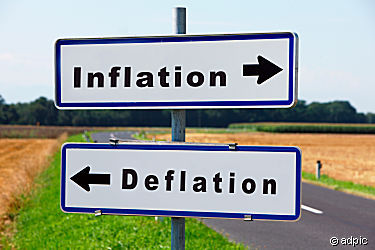GROW UP!
How can anyone be for this spoiled brat?
Of all the many things said about Donald Trump, what was said by Roger Ailes, head of the Fox News Channel, said it all in just two words: “Grow up!”
It is amazing how many people have been oblivious to this middle-aged man’s spoiled brat behavior, his childish boastfulness about things he says he is going to do, and his petulant response to every criticism with ad hominem replies.
He has boasted that his followers would stick by him even if he committed murder. But is that something to boast about? Is it not an insult to his followers, if it is true? Moreover, his cockiness is misplaced, because he still does not have a majority among Republican voters, while you need a majority of all the voters to win any state in the general election.
Trump has a showman’s talent for telling people what they want to hear. But you can listen in vain for a coherent argument from him, based on facts and logic, much less an understanding of the inherent limitations of the office of president.
More than two centuries ago, Edmund Burke said: “Constitute government how you please, infinitely the greater part of it must depend upon the exercise of the powers which are left at large to the prudence and uprightness of ministers of state.”
In other words, the personal character of the people to whom you entrust the powers of government matters even more than what kinds of government institutions there are. There have been some good kings and some bad presidents, as well as vice versa.
Is the fact that he loudly expressed our own disgust with the political establishment a sufficient reason to gamble the whole future of the country by putting him in the White House?
The White House is not a place for on-the-job training. You are supposed to be ready, or at the very least grown up, before you walk in the door. Aging happens automatically, but maturity is optional — and it is an option that Donald Trump has not yet chosen to exercise.
The issue that Trump raised about Ted Cruz’s having been born in Canada is not the first time he has tried to challenge where someone was born. “The Donald” was among those who tried to say that Barack Obama was not born an American citizen, and who disgraced themselves, while undermining other critics of Obama who had serious objections to his policies.
On the other hand, messianic demagogues have often spoken at least part of the truth. But they have also often led their followers to their doom, whether at Jonestown, Stalingrad, or innumerable other places. That is a very high price to pay for an exhilaration of the moment.
Donald Trump is not the only one who needs to act like an adult. With this country starting to unravel from within, while ruthless enemies overseas are developing both nuclear weapons and intercontinental missiles to deliver them, we face problems that cannot be solved by candidates with glib words or by voters who votes for whoever meets their emotional needs.
If you don’t understand the issues, but want to do your patriotic duty, then stay home on election night, whether in the primaries or in the national election in November. Uninformed voters turn elections into a game of playing Russian roulette with the future of America.
Conservative candidates will also have an opportunity to show their maturity and their patriotism. This is not the first primary season in which the conservative vote has been split among so many Republican candidates that it virtually guarantees that someone who is not a conservative will win the Republican nomination.
At some point during the primary season, it becomes clear that some candidates have no real chance of winning the nomination, much less the general election. At that point they can either continue hanging on, keeping the conservative vote split, or they can withdraw and throw their support to some other conservative candidate who has a chance.
A lot of people need to grow up, and to do something for this country that has done so much for them.












